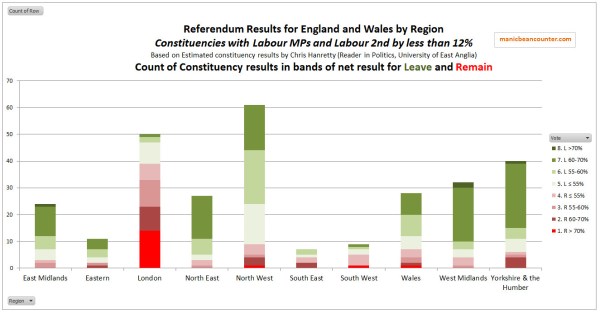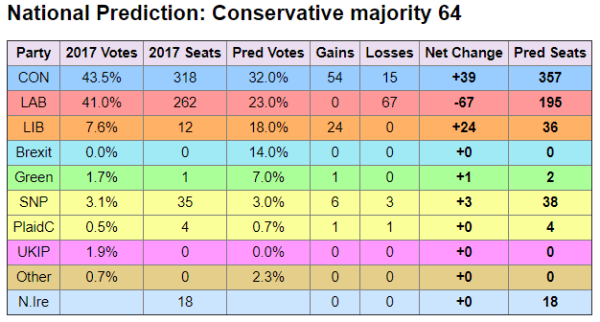Over at Cliscep, Geoff Chambers has been reading some blog articles by Dominic Cummings, now senior advisor to PM Boris Johnson, and formerly the key figure behind the successful Vote Leave Campign in the 2016 EU Referendum. In a 2014 article on game theory Cummings demonstrates he has actually read the Von Neumann’s articles and seminal 1944 book “A Theory of Games and Economic Behavior” that he quotes. I am sure that he has drawn on secondary sources as well.
A key quote in the Cummings article is from Von Neumann’s 1928 paper.
‘Chess is not a game. Chess is a well-defined computation. You may not be able to work out the answers, but in theory there must be a solution, a right procedure in any position. Now, real games are not like that at all. Real life is not like that. Real life consists of bluffing, of little tactics of deception, of asking yourself what is the other man going to think I mean to do. And that is what games are about in my theory.’
Cummings states the paper
introduced the concept of the minimax: choose a strategy that minimises the possible maximum loss.
Neoclassical economics starts from the assumption of utlity maximisation based on everyone being in the same position and having the same optimal preferences. In relationships they are usually just suppliers and demanders, with both sides gaining. Game theory posits that there may be net are trade-offs in relationships, with possibilities of some parties gaining at the expense of others. What Von Neumann (and also Cummings) do not fully work out is a consequence of people bluffing. As they do not reveal preferences it is not possible to quantify the utility they receive. As such mathematics is only of use in working through hypothetical situations not for empirically working out optimal strategies in most real world sitautions. But the discipline imposed by laying out the problem on game theory is to recognize that opponents in the game both have different preferences and may be bluffing.
In my view one has to consider the situation of the various groups in the Brexit “game”.
The EU is a major player whose gains or losses from Brexit need to be considered. More important that the economic aspects (the loss of 15% of EU GDP; a huge net contributor to the EU budget and a growing economy when the EU as a whole is heading towards recession) is the loss face at having to compromise for a deal, or the political repurcussions of an Indpendent Britain being at least as successful as a member.
By coming out as the major national party of Remain the Liberal Democrats have doubled their popular support. However, in so doing they have taken an extreme position, which belies their traditional occupation of the centre ground in British politics. Further, in a hung Parliament it is unlikely that they would go into coalition with either the Conservatives or Labour. The nationalist Plaid Cymru and SNP have similar positions. In a hung Parliament the SNP might go into coalition with Labour, but only on the condition of another Scottish Independance Referendum.
The Labour Party have a problem. Comparing Chris Hanretty’s estimated the referendum vote split for the 574 parliamentary constituencies in England and Wales for the EU Referendum with 2015 General Election Results, Labour seats are more deeply divided than the country as a whole. Whilst Labour held just 40% of the seats, they had just over half the 231 seats with a 60% or more Leave vote, and almost two-thirds of the 54 seats with a 60% or more Remain vote. Adding in the constituencies where Labour came second by a margin of less 12% if the vote, (the seats need to win a Parliamentary majority) I derived the following chart.

Tactically, Labour would have move towards a Leave position, but most of the MPs were very pro-Remain and a clear majority of Labour voters likely voted remain. Even in some Labour constituencies where the constituency as a whole voted Leave, a majority of Labour voters may voted Remain. Yet leading members of the current Labour leadership and a disproportionate number of the vast leadership are in very pro-Remain, London constituencies.
The Conservative-held seats had a less polarised in the spread of opinion. Whilst less than 30% of their 330 England and Wales voted >60% Leave, the vast majority voted Leave and very few were virulently pro-Remain.

But what does this tell us about a possible Dominic Cummings strategy in the past few weeks?
A major objective since Boris Johnson became Prime Minister and Cummings was appointed less than two months ago has been a drive to Leave the EU on 31st October. The strategy has been to challenge the EU to compromise on the Withdrawal Agreement to obtain a deal acceptable to the UK Parliament. Hilary Benn’s EU Surrender Act was passed to hamper the negotiating position of the Prime Minister, thus shielding the EU from either having to either compromise or being seen by the rest of the world as being instransigent against reasonable and friendly approaches. Also, it has been to force other parties, particularly Labour, to clarify where they stand. As a result, Labour seems to a clear Remain policy. In forcing the Brexit policy the Government have lost their Parliamentary majority. However, they have caused Jeremy Corbyn to conduct a complete about-turn on a General Election, called for an ummediate election, then twice turning down the opportunity to call one.
Back to the application of game theory to the current Brexit situation I believe there to be a number of possible options.
- Revoke Article 50 and remain in the EU. The Lib Dem, Green, SNP amd Plaid Cymru position.
- Labour’s current option of negotiating a Withdrawal Agreement to liking, then hold a second referendum on leaving with Withdrawal Agreement or reamining in the EU. As I understand the current situation, the official Labour position would be to Remain, but members of a Labour Cabinet would be allowed a free vote. That is Labour would respect the EU Referendum result only very superficially, whilst not permitting to break away for the umbrella of EU institutions and dik tats.
- To leave on a Withdrawal Agreement negotiated by PM Boris Johnson and voted through Parliament.
- To leave the EU without a deal.
- To extend Article 50 indefinitely until the public opinion gets so fed up that it can be revoked.
Key to this is understanding the perspectives of all sides. For Labour (and many others in Parliament) the biggest expressed danger is a no-deal Brexit. This I believe is either a bluff on their part, or a failure to get a proper sense of proportion. This is illustrated by reading the worst case No Deal Yellowhammer Document (released today) as a prospective reality rather than a “brain storm” working paper as a basis for contingency planning. By imagining such situations, however unrealistic, action plans can be created to prevent the worst impacts should they arise. Posting maximum losses allows the impacts to be minimized. Governments usually kept such papers confidential precisely due to political opponents and journalists evaluating as them as credible scenarios which will not be mitigated against.
Labour’s biggest fear – and many others who have blocked Brexit – is of confronting the voters. This is especially due to telling Leave voters they were stupid for voting the way they did, or were taken in by lies. Although the country is evenly split between Leave and Remain supporting parties, the more divided nature of the Remainers is that the Conservatives will likely win a majority on around a third of the vote. Inputting yesterday’s YouGov/Times opinion poll results into in the Electoral Calculus User-Defined poll gives the Conservatives a 64 majority with just 32% of the vote.

I think when regional differences are taken into account the picture is slightly different. The SNP will likely end up with 50 seats, whilst Labour could lose seats to the Brexit Party in the North and maybe to the Lib Dems. If the Conservatives do not win a majority, the fifth scenario is most likely to play out.
In relation to Cummings and Game Theory, I would suggest that the game is still very much in play, with new moves to be made and further strategies to come into play. It is Cummings and other Government advisors who will be driving the game forward, with the Remainers being the blockers.
Kevin Marshall
Updated 29/09/19
Geoff Chambers
/ 13/09/2019Great. This is the article I would have written, if I had the necessary statistical nous about Cummings. But there’s a lot more to him than winning elections for the Tories. (He says somewhere that he’s always voted Labour.)
Like Matt Ridley, he’s a landowner in North East England. This suggests the kind of division England knew in the Civil War, between Royalist/Remainer London and Oxford, and the Cromwellian landed gentry elsewhere.